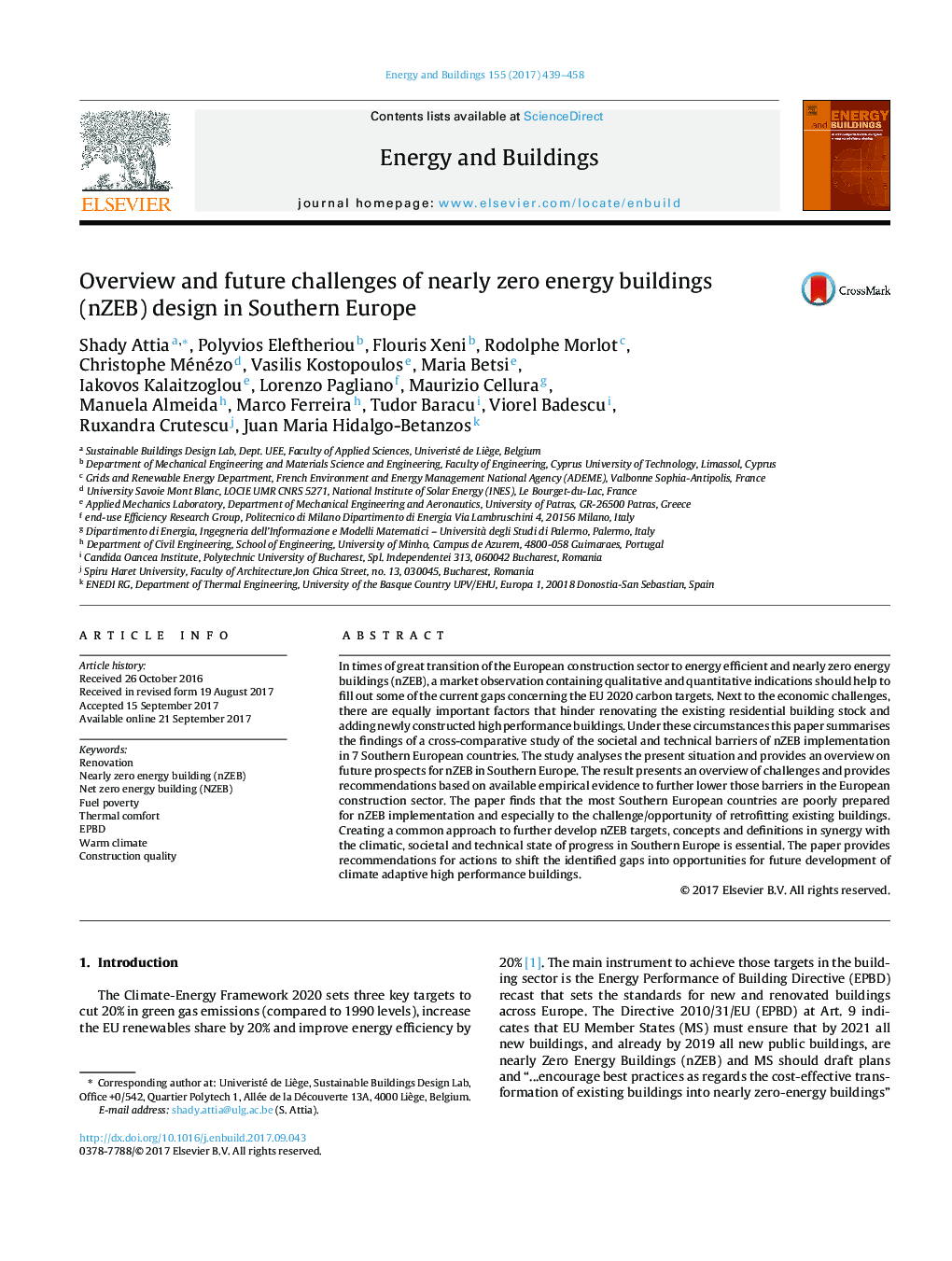| Article ID | Journal | Published Year | Pages | File Type |
|---|---|---|---|---|
| 4918872 | Energy and Buildings | 2017 | 20 Pages |
Abstract
In times of great transition of the European construction sector to energy efficient and nearly zero energy buildings (nZEB), a market observation containing qualitative and quantitative indications should help to fill out some of the current gaps concerning the EU 2020 carbon targets. Next to the economic challenges, there are equally important factors that hinder renovating the existing residential building stock and adding newly constructed high performance buildings. Under these circumstances this paper summarises the findings of a cross-comparative study of the societal and technical barriers of nZEB implementation in 7 Southern European countries. The study analyses the present situation and provides an overview on future prospects for nZEB in Southern Europe. The result presents an overview of challenges and provides recommendations based on available empirical evidence to further lower those barriers in the European construction sector. The paper finds that the most Southern European countries are poorly prepared for nZEB implementation and especially to the challenge/opportunity of retrofitting existing buildings. Creating a common approach to further develop nZEB targets, concepts and definitions in synergy with the climatic, societal and technical state of progress in Southern Europe is essential. The paper provides recommendations for actions to shift the identified gaps into opportunities for future development of climate adaptive high performance buildings.
Keywords
Related Topics
Physical Sciences and Engineering
Energy
Renewable Energy, Sustainability and the Environment
Authors
Shady Attia, Polyvios Eleftheriou, Flouris Xeni, Rodolphe Morlot, Christophe Ménézo, Vasilis Kostopoulos, Maria Betsi, Iakovos Kalaitzoglou, Lorenzo Pagliano, Maurizio Cellura, Manuela Almeida, Marco Ferreira, Tudor Baracu, Viorel Badescu,
